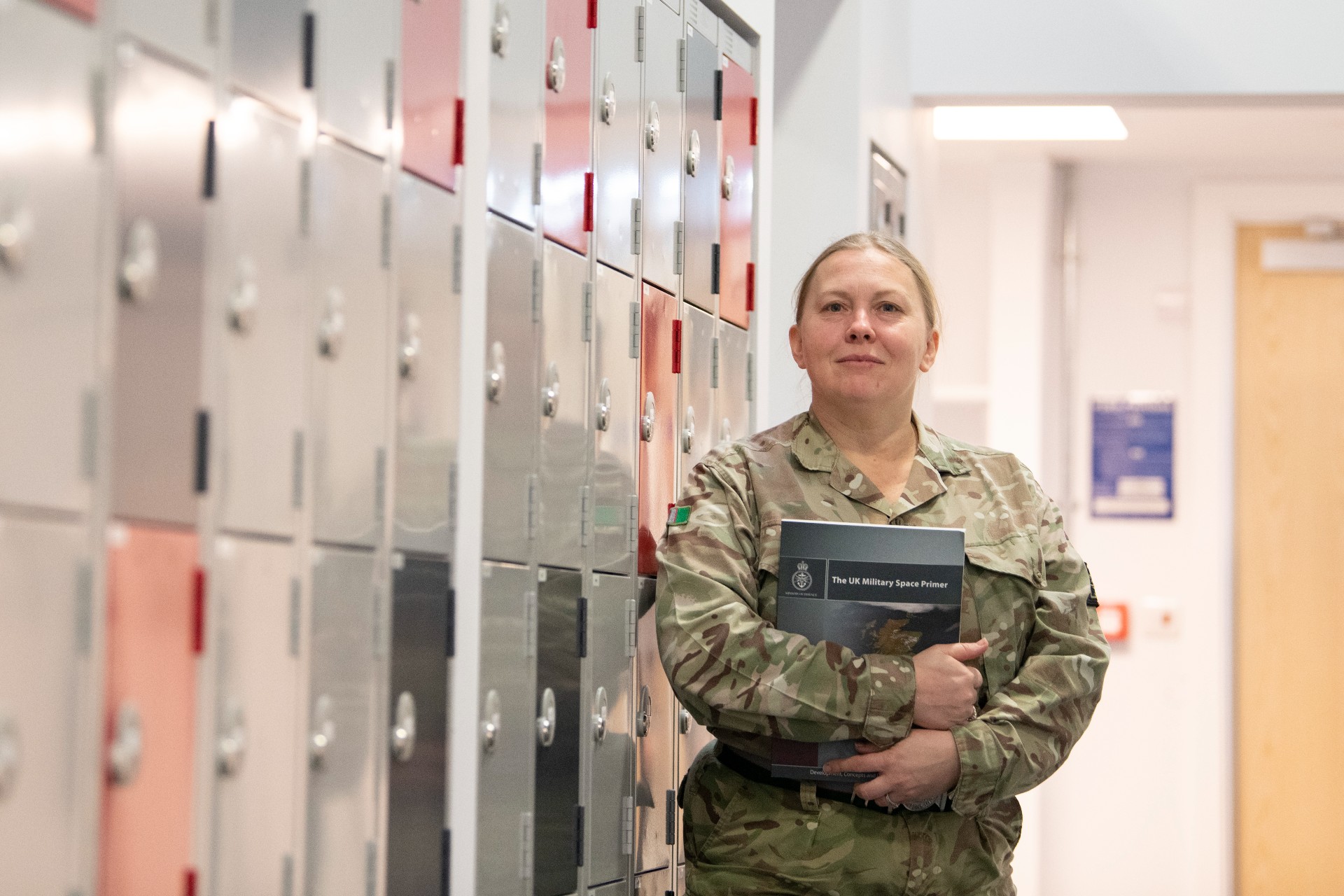Trainer, Defence Cyber School

In the world of cyber warfare, you might be surprised to learn that the Defence Academy uses gaming to teach the next generation of cyber operators, just one of its many modern approaches to training.
This gamification of training allows students to use immersive, Synthetic Learning Environments (SLEs). It allows students to practise and hone their cyber skills, at home if they wish, attacking and defending virtual systems without the risk of damaging real-life IT networks.
“They have to understand how an enemy might attack a network, so as well as defending a system, it’s vital they learn how to attack as well… and the game-like virtual lab lets them do that safely,” said Staff Sergeant Murray, Trainer at the Defence Cyber School (DCS).
“A lot of our students are gamers. They take this very seriously and try to go as far as they can to be top of the leader board. All of them, no matter what their age or background, benefit from this because most people are experienced with online platforms now. We have many kinaesthetic learners, who learn best by doing, and this helps them a lot."
The DCS is a centre of excellence for cyber training for defence, preparing personnel for operations above and below the threshold of armed conflict. SSgt Murray, who joined the DCS as an instructor in 2020, said that gamification is just one example of innovation in training.
“We have a flexible training pathway that adapts to the skill level and requirements of our students and their personal circumstances. Courses – whether master’s degree study or the Cyber Foundation Pathway (CFP) – can be delivered online as well as face-to-face. We can tailor the nine CFP modules to meet individuals’ needs, starting with the basics or moving straight to more advanced modules. This flexibility means the DCS can reach a wider audience by allowing people who might otherwise struggle with the commitment of cyber training to adapt the courses to their professional and domestic schedules."
As a supervisor of new staff joining DCS, SSgt Murray aims to ensure that, as well as being cyber experts, they become effective teachers in this increasingly critical domain.
“Of course, we are on the cyber front line at the DCS, but it’s important that everyone is cyber aware. It doesn’t matter what your role and background are. For instance, we’ve had a military chef on the course who wanted to learn about cyber… and he did very well.”
The DCS demonstrates how the Defence Academy is optimising professional defence and security education, sharpening the intellectual and technological edge of our people.
